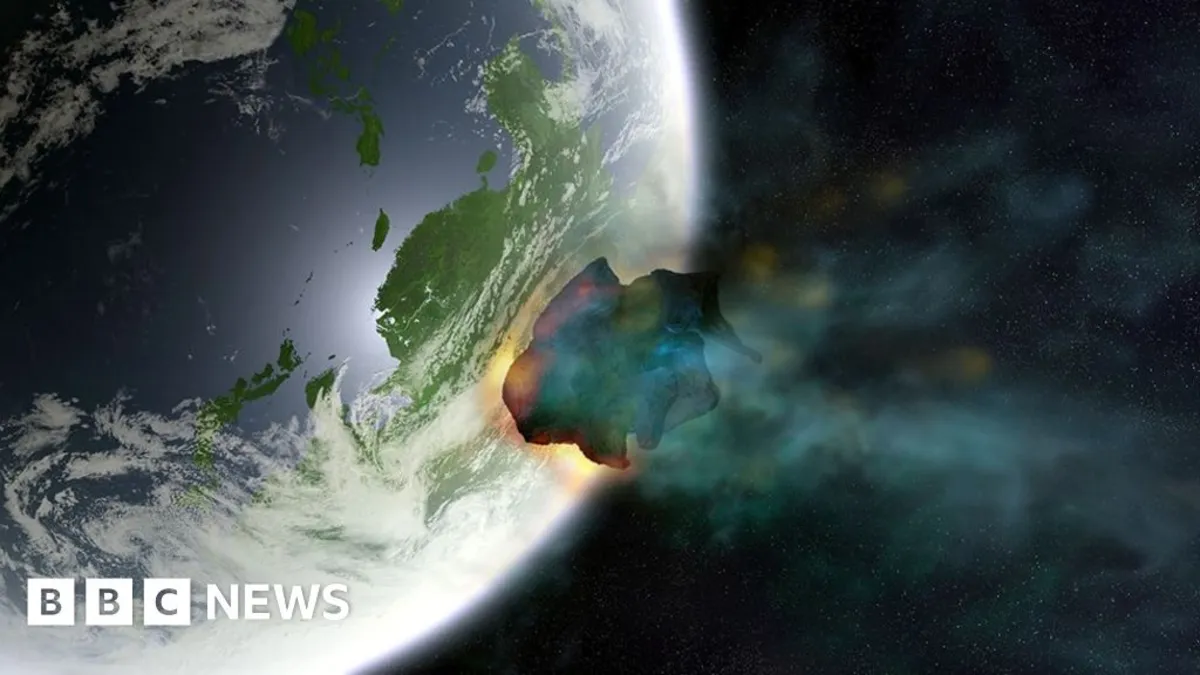
Recent scientific research has unveiled compelling evidence that an asteroid struck the North Sea over 43 million years ago, resulting in the formation of a massive tsunami and a colossal crater beneath the seabed. This geological marvel, known as the Silverpit Crater, spans approximately 1.9 miles (3 km) in width and is located about 80 miles (128 km) off the East Yorkshire coast. Discovered in 2002, the crater has been the subject of debate among geologists regarding its origins.
Since its discovery, scientists have proposed various theories to explain the formation of the Silverpit Crater. Some researchers suggested that it was caused by the movement of salt rock or the collapse of the seabed due to volcanic activity. However, a new study employing advanced seismic imaging and meticulous analysis of rock samples has provided clarity to this long-standing debate, indicating that the crater was indeed formed by a 535ft (160m) wide asteroid impact.
Dr. Uisdean Nicholson, an associate professor at Edinburgh's Heriot-Watt University, emphasized that modern technology has played a crucial role in solving the mystery surrounding the Silverpit Crater. Funded by the Natural Environment Research Council, the research team successfully recovered rare shocked quartz samples, which have decisively supported the impact hypothesis. "We were exceptionally lucky to find these, a real needle-in-a-haystack effort," Dr. Nicholson noted. These quartz samples exhibit a unique fabric that can only be formed under extreme shock pressures, confirming the asteroid impact theory beyond doubt.
According to Dr. Nicholson, the asteroid impact would have triggered a catastrophic tsunami measuring approximately 328ft (100m) in height. The crater itself lies hidden beneath the current seabed, making it invisible to the naked eye. To uncover its secrets, scientists utilized scanning equipment akin to ultrasound technology, allowing them to map the crater's dimensions and formation.
Crucially, Dr. Nicholson pointed out that such impact craters are exceedingly rare. To date, around 200 confirmed impact craters have been identified on land, with only about 33 located beneath the ocean. Notable examples include the Chicxulub Crater in Mexico, which is linked to the asteroid impact that contributed to the extinction of the dinosaurs 66 million years ago. Understanding these geological phenomena helps us grasp how asteroid impacts have influenced our planet throughout its history.
Dr. Nicholson concluded that the findings from this study not only provide insights into the past but also serve as a crucial tool for predicting the potential consequences of future asteroid collisions. "We can use these findings to understand how asteroid impacts shaped our planet throughout history," he stated. As research continues, the implications of these discoveries could prove vital for planetary defense strategies.
For more updates on this groundbreaking research, tune in to highlights from Hull and East Yorkshire on BBC Sounds, or catch the latest episode of Look North. If you have a story that deserves coverage, feel free to reach out to us.